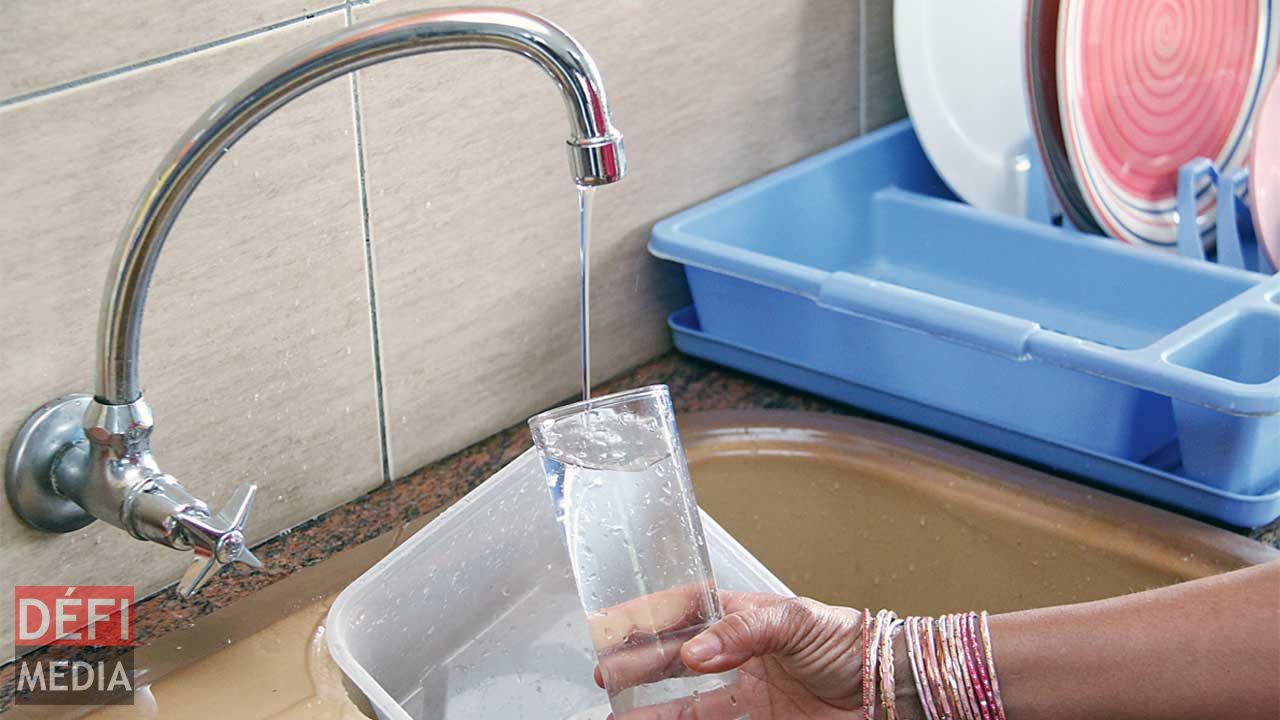
The privatisation of the Central Water Authority is again in the news. The government has agreed to implement World Bank recommendations on Water Sector Reform. The World Bank proposes, among others, to appoint a private operator.
Publicité
The question of privatization of the Central Water Authority has been doing the rounds for long. The government has now agreed to implement the recommendations of the World Bank on Water Sector Reform. In 2015, the World Bank was appointed to conduct a study to evaluate the water sector reform options, including the use of public private partnership options. The objective was to improve Customer Service delivery whilst focusing on achieving continuous supply, efficient use of funding for capital investments, and building domestic capacity to move towards financial sustainability of the sector.
The World Bank has, among others, made the following recommendations: the CWA, with the support of an experienced operator, could turn around its service delivery to achieve regular supply of water all year round; the CWA would continue to own the water distribution and supply assets, and be responsible for business planning, capital expenditure, monitoring and enforcing the operator performance, as well as setting tariffs; the appointment of a private operator to operate and maintain the potable water distribution system of the CWA; and the private operator should recruit employees to provide a better service to the customers.
The issue of privatisation of the Central Water Authority has always given rise to intense debate, among employees, trade unions, consumer groups, civil society and politicians. One of the main concerns is the likelihood of higher water rates for consumers. Being a public entity with a social objective, the CWA is bound to provide water to households even at high costs, whereas a private operator will only be motivated by profits. Those against privatisation have already constituted a common ‘Anti-Privatisation Platform’ to protest against any such move. On the other hand, those who support privatization argue that this will bring more efficiency and less wastage.
Employees’ major concern is that there might be redundancies, and established employees may lose their rights and privileges in case of a change in organizational structure. Consumer watchdogs, on their hand, resent the idea that a sector as vital as water distribution might end up in private hands. This might also spells the end of government subsidies, thus leading to higher price of water, beyond the reach of the poor.
In February 2016, the Government of Mauritius and the World Bank signed a Reimbursable Advisory Services (RAS) agreement to support water reforms designed to improve the country’s water security in light of climate change, and gradually foster self-financing sustainability of the water sector in the next 10 years. Mauritius is said to be increasingly suffering from water scarcity. The country with renewable water availability per capita at only 1,083 cubic metre per year in 2013 is already classified as a water-stressed country, and is expected to fall under the water-scarce category by 2020 (projected at 974 cubic metre per year, below the 1,000 cubic meter threshold).
In addition, Mauritius is highly vulnerable to climate change, whose negative impacts are already being felt in the last decade through longer dry seasons, shorter wet seasons and increased intensity of droughts. This results in more than 20% of the population suffering recurrent intermittent water supply under normal conditions (i.e. even during the wet season) – a figure that can rise to 75% during the dry season.
“Given Mauritius’ relatively high standard of living, potable water shortages are causing increasing malaise within the population, while also being a bottleneck for economic development,” Mark Lundell, World Bank country director for Mauritius, Madagascar, Mozambique, Seychelles and Comoros said last year. The RAS represents the cornerstone of a comprehensive World Bank support package to water PPP reform in Mauritius, combining expert technical assistance and financial instruments, a potential provision of a Bank guarantee, and transaction advisory support to prepare bid documents and assist in the tender of the water PPP.

 Ashwin Baijnath: “It’s in the national interest”
Ashwin Baijnath: “It’s in the national interest”
Ashwim Baijnath, Business Consultant, says that the privatisation of the CWA is important, as it is in the national interest. “With privatization, services will improve greatly. Of course there are fears of higher rates, but at present, with extremely low rates, the service is unsatisfactory and I am sure consumers will be willing to pay a bit more if the service is improved. It is also the role of government to subsidise the water bills of the poor. As a comparison, one only needs to see how the service at vehicle examination centres has improved after privatisation.”
 Jayen Chellum of ACIM: “We are against”
Jayen Chellum of ACIM: “We are against”
Jayen Chellum, general secretary of the ‘Association des Consommateurs de l’ile Maurice (ACIM)’, says he is against the privatisation of the CWA. “Since long, we have been campaigning against this privatisation. Water is and remains a public good and its production and distribution must remain with the State. A private operator will definitely have recourse to a price hike, which will be detrimental to consumers, especially those at the lower end of the social ladder. We note that the Minister of Public Utilities is adamant of going towards privatization, and we feel that the ML party is forcing the government towards this end.
However, I am fully convinced that we don’t need to privatise or find a strategic private partner to solve our water problems. The main issue is the loss of nearly 50 percent of water in defective distribution network. The government only needs to invest to replace old pipes, and we don’t even need private investment as the funds are there, through the Build Mauritius Fund. Even the CWA Director has said the organization can overcome its problems. The government also need to urgently revisit the ‘Water Rights’ issue and bring amendments to the relevant legislations that date back to the 1800s so that we have more access to water found on private property. It is regrettable that our demand to meet the CWA and the Minister has been turned down.”
The issue in Parliament
On 29 March 2016, in reply to a Parliamentary Question on the privatisation of the Central Water Authority, the Minister of Public Utilities, Ivan Collendavelloo, stated that “on several occasions, I have mentioned privatisation of CWA to be on the agenda of Government. Privatisation is not to be restricted to an outright sale of CWA assets and operations to a private firm or individual. As I understand it, the term “privatisation” includes all forms of private sector participation. In that sense, the term “strategic partnership”, as used by Hon. Jahangeer, is perhaps a better term. But privatisation or strategic partnership or private sector participation may take many forms and, in the present context, no concept should be discarded….
Yes, I have already made up my mind, and the World Bank is there to advise me as to the best way in which we will come towards that privatisation. It is clear. This thing about God giving us rain and we cannot give it to the private sector is a thing of Harish Boodhoo in 1982. Let’s forget about this. We have to be modern, we have to be efficient. And the only way you are going to go about it is with private sector participation. Yes, I have made up my mind and that is why I am a Minister.”
“Privitization poorly handled”
 According to Fredrik Segerfeldt, Program Director at the Stockholm-based think tank Timbro and author of ‘Water For Sale: How Business and the Market Can Resolve the World’s Water Crisis’, the word ‘privatisation’ has been wrongly used each time a private enterprise is linked to water distribution. He writes that many privatizations across the world have been poorly handled. In practice, there are five types of private sector engagement:
According to Fredrik Segerfeldt, Program Director at the Stockholm-based think tank Timbro and author of ‘Water For Sale: How Business and the Market Can Resolve the World’s Water Crisis’, the word ‘privatisation’ has been wrongly used each time a private enterprise is linked to water distribution. He writes that many privatizations across the world have been poorly handled. In practice, there are five types of private sector engagement:
- A simple service contract where a private enterprise maintains the distribution network
- An operation contract, where the private enterprise operates the network, without owning it
- A lease agreement whereby the private operator runs the infrastructure for a definite period of time
- A concession, similar to a lease, with set objectives concerning rates, number of household connections, volume of water to be produced and quality issues, etc
- The complete taking over of infrastructure, under government regulation.
Famous quotes on Fredrik Segerfeldt’s book
“Water has become a commodity whose quantity and quality are much too important to leave to the whims of public authorities. Water supply systems are in need of regulation through private ownership rights and markets for the transfer of these rights. Read this book and find out why.”
Vernon L. Smith, Nobel Laureate in Economics
“When it comes to water policy books, relevance and sense are rare commodities. So it’s a pleasant surprise that Fredrik Segerfeldt has provided both in this most useful addition to the literature. Water privatization has proved difficult nearly everywhere it’s been tried, but, as this book neatly explains, the alternative has usually been worse. Water for Sale should be widely read, especially by engineers, hydrologists, and government officials who know little, and usually care even less, about markets.”
Roger Bate, Africa Fighting Malaria
“Fredrik Segerfeldt’s book Water for Sale is an excellent argument for private management of humankind’s most valuable natural resource. Its thesis is both provocative and suggestive—water is scarce in developing countries because of poor management, not because it is in short supply. Water policy affects the future of millions of people across the globe. Segerfeldt offers an efficient, sure, and safe alternative for this future. With this hope, I sincerely recommend this book.”
Beatriz Merino, Former Prime Minister of Peru

Notre service WhatsApp. Vous êtes témoins d`un événement d`actualité ou d`une scène insolite? Envoyez-nous vos photos ou vidéos sur le 5 259 82 00 !






















![[Info Soirée] : « si bann zenn donn nou koudme nou kapav gayn konseye ki eli »](https://defimedia.info/sites/default/files/styles/square_thumbnail/public/whatsapp_image_2025-01-18_at_20.35.09.jpeg?itok=0BisjGbp)



